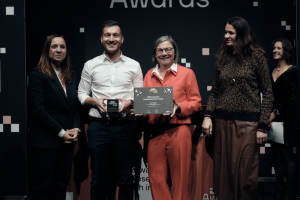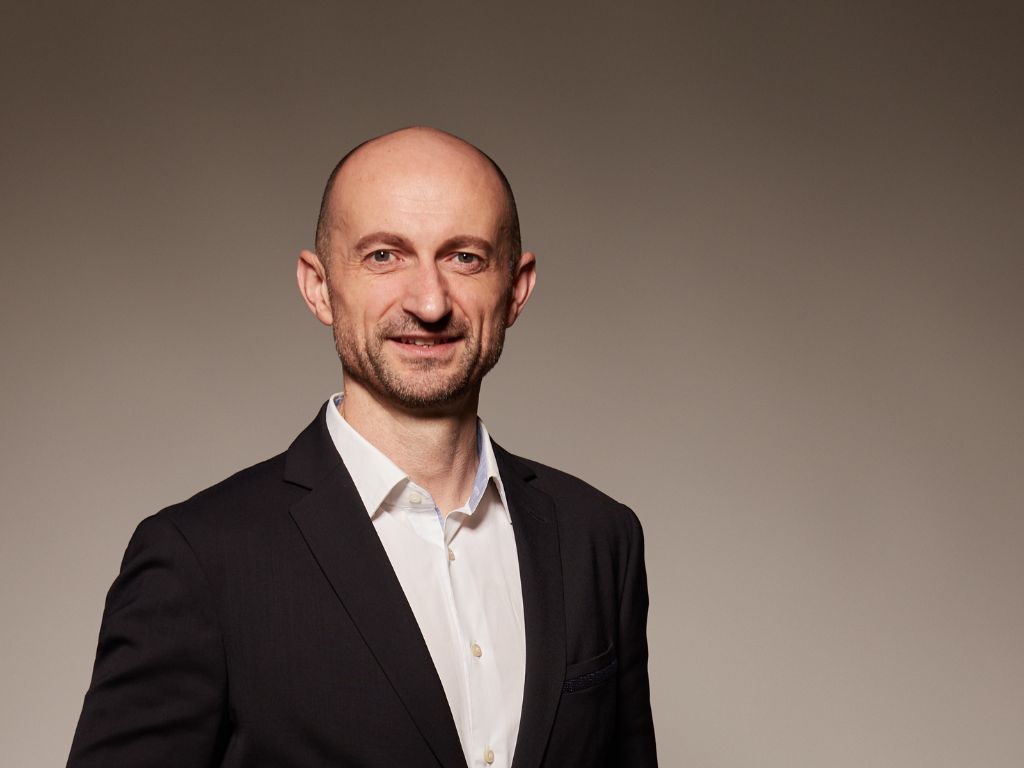When you speak with Florian Felten, one thing becomes clear almost immediately: curiosity has been his driving force since the very beginning. Now an FNR Award–winning researcher and co-founder of the AI-powered startup FeedbAct, Florian’s journey began with a fascination for computers that could “find solutions on their own.”
“It feels quite amazing,” he says. “You give the computer a problem, and it comes back with a solution. When I first programmed a computer to play chess, and it got better than me, that was a magical moment.”
A curiosity that led to SnT
Florian’s path to pursuing a PhD at SnT was shaped by both proximity and reflection. Born and raised near the Belgian border, he had always been aware of the University’s growing reputation in technology and research. While working in industry, COVID-19 became a turning point.
“I’d always had this idea of doing a PhD. When the world stopped during the pandemic, I had time to think and I decided to go for it.”
At SnT, Florian discovered the perfect place to merge his technical skills with academic research. In the Parallel Computing and Optimisation (PCOG) research group, and under the supervision of Dr. Grégoire Danoy, Florian’s research helped build a bridge between industry applications and scientific curiosity.
That curiosity paid off. In October 2025, Florian received the Outstanding PhD Thesis Award at the Luxembourg National Research Fund (FNR) Awards for his thesis “Multi-Objective Reinforcement Learning.” His research formed part of an FNR CORE project, entitlted Automating the Design of Autonomous Robot Swarms, focused on automatically generating computer programs to control swarms of drones. The outcome of his work is helping AI to better understand and navigate trade-offs – a crucial step toward more adaptive and human-aligned artificial intelligence.
The “aha’ moment: bridging two worlds of AI
Every researcher remembers their breakthrough moment. For Florian, it came when he realised that two seemingly separate niche research communities were, in fact, studying the same concepts. They were just using different languages.
His PhD research explored multi-objective optimisation, which finds the best trade-offs between conflicting goals, and reinforcement learning, where AI learns by trial and error. He found that these two areas often described the same ideas using different terms.
“It was confusing at first,” he admits. “But then I realised these communities were working in parallel without realising it. Once I mapped their terms, it helped both sides understand each other better.”
This insight became the foundation for one of his key papers, which built a bridge between the two disciplines.
Making AI more human-centric
Asked to describe his research in simple terms, Florian explains that AI, at its core, is a tool to help humans make better decisions.
From managing energy in electricity grids to optimising logistics, AI is already influencing how we control complex systems. But his research focused on personalisation – AI that can adapt its recommendations to human values and preferences.
“Today’s AI often gives general advice because it’s trained on averages,” he says. “But my research aimed to make it personal so that decisions align with what you, as an individual, actually value.”
He gives an everyday example: “Google Maps might tell you to drive because it’s fastest. But if it knew you cared about the environment or enjoy cycling, it could recommend a route that reflects those characteristics. Customisation is where AI is heading.”
The future of AI: from language models to robots
The conversation turns to the future, and Florian’s excitement is palpable.
He predicts rapid progress in robotics and automated scientific discovery.
“Reinforcement learning is already behind large language models,” he notes. “But it’s also starting to control real robots and even help automate and advance the exploration of science itself. We now have AI systems that can prove mathematical theorems or design engineering components.”
He laughs when asked if AI might one day outsmart humans completely.
“We’re far from that,” he assures. “AI is just an algorithm optimising for a goal. It’s not conscious – it’s a problem-solver.”
Advice for the next generation of researchers
Florian’s reflections on research culture are both thoughtful and candid.
“It’s easy to get caught up in publishing for the sake of vanity metrics like for the number of papers and citations. But what really matters is impact. Who will use your work? How will it make life better?”
He encourages researchers to stay curious, look beyond their niche, and resist chasing whatever topic is currently fashionable.
“Sometimes, the best ideas come from looking at other fields,” he says. “And don’t forget to think about the people who’ll use your research.”
His own experience working in industry before returning to academia also gave him valuable perspective.
“It helps to understand how things work in the real world. In industry, you see how software is actually used. That makes your research more grounded.”
From research to entrepreneurship: FeedbAct
Since leaving SnT in 2024, Florian has embarked on a new adventure: entrepreneurship. Alongside his ongoing research at ETH Zurich on AI for engineering design, he co-founded FeedbAct, an AI-powered employee feedback platform for organisations.
“You know those long annual employee surveys? You spend 25 minutes ticking boxes, but you can’t really express what you think. We wanted to change that.”
FeedbAct replaces rigid questionnaires with a conversational chatbot that helps employees express qualitative feedback and then uses AI to analyse and summarise it for HR and management. This is a perfect example of how AI can enhance existing processes and make them more human-centric – especially for deeply human tasks like sharing opinions.
“If 172 people mention that travel policies are frustrating, the system identifies that theme automatically,” he explains. “It gives you the ‘why’ behind the numbers.”
The startup is based in Brussels, and Florian plans to join it full-time in early 2025.
Looking ahead
Florian Felten’s journey embodies SnT’s mission: Linking research and real-life impact.
From connecting AI communities to founding a company that humanises workplace feedback and earning FNR recognition, his work shows how curiosity drives meaningful technology.
“In the end,” he concludes, “it’s about using AI to empower people – not replace them.”


